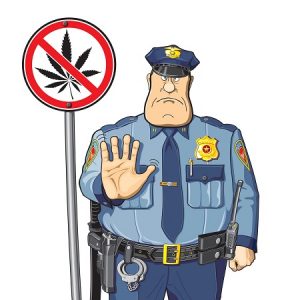Recovery and The Slow Death of Prohibition
by Thaddeus Camlin, Psy.D.

Recreational cannabis use was legalized in Arizona, California, Maine, and Massachusetts on November 8, 2016, bringing the total number of states to legalize cannabis to eight. The end of cannabis prohibition across the United States seems to be more a matter of how long it will take, not if it will happen. What does this mean for the recovery community?
For the recovery industry, an insistence upon total cannabis abstinence loses merit in a culture of growing acceptance and widespread availability. Where cannabis is legal, the argument by abstinence-only approaches for cannabis can no longer be justified by the risk of severe legal repercussions. People who struggle with substance use and who benefit from abstinence-only approaches still often moderate legal psychoactive substances such as nicotine and caffeine. Rigid stances for cannabis abstinence will likely experience decreasing credibility and appeal as acceptance of cannabis use continues to rise.
The slow death of cannabis prohibition presents unique considerations for every individual. For many, the risk of legal complications was a major factor in choosing to abstain from cannabis. With the potential for immediate and severe legal consequences removed, some people may find themselves reevaluating the costs and benefits of moderating cannabis use. Without the external motivator of legal ramifications, the bulk of an individual’s choice to moderate vs. abstain increasingly falls on internal motivators. Before any decision to moderate any substance is made, it is useful to consider important personal factors.
Before moderation it is valuable to consider your personal level of motivation for moderation vs. abstinence, your current circumstances, and past success moderating the substance in question. It is also valuable to examine your personal beliefs about self-control and what significant others would prefer. Realistically consider how much effort and decision-making you will need to put into moderating successfully and ask yourself if it is worth that amount of time and energy. Lastly, factor in what anybody with authority over you might think (e.g. employer, licensing board, etc.). An impulsive decision to moderate a substance is much less likely to be successful than a calculated one.
Without legal punishment as a deterrent for substance use, the individual is left with a more self-empowering decision based on internal motivation. If the abstinence-only areas of the recovery industry do not adjust with shifting cultural opinions, those approaches may find themselves becoming less appealing and increasingly obsolete. The slow, seemingly inevitable death of cannabis prohibition presents unique challenges and opportunities for individuals and the recovery industry as a whole.
Liked this article? You might also be interested in: Cannabis-Induced Psychosis is No Reason to Keep Pot Illegal
